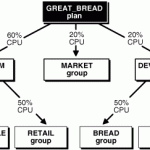
With this interconnectivity, accounting software for trucking companies can gather essential data, improving the accuracy of financial records. PCS supports multiple third-party integration partners for comprehensive data access. Accounting software for trucking companies aids in adhering to industry-specific regulations, such as tracking miles for the International Fuel Tax Agreement (IFTA).

This includes finding work on load boards, driver and maintenance management, invoicing, and expense tracking. While trucking accounting software typically refers to a standalone product, some trucking accounting solutions are just one component of a comprehensive trucking management system. Trucking management software typically automates tasks like dispatching, fleet management, and maintenance scheduling. However, some trucking companies and owner operators may find general accounting software sufficient if they have separate solutions for trucking-specific needs. For example, some ELDs and fuel cards provide automated IFTA tax reports. While in-office personnel can be paid in person regularly, truckers might be on the road when payday rolls around.
Why Trucking Accounting Software is Important
It does not include payroll or bank reconciliation but can integrate with Quickbooks to give a complete accounting service. Filing International Fuel Tax Agreement (IFTA) reports for interstate or international trucking jobs can take time. First, you must create the necessary fuel and mileage reports for your fleet. Throughout the entire process, you need to track receipts, manage mileage logs, and match fuel to taxes in each state or province.
- So if your accounting department is overwhelmed by the workload, Axon may be able to help.
- Along with an inventory tracking system, choosing accounting software is one of the most important decisions you can make for your company.
- This integration automatically calculates driver pay based on completed trips, distance covered, or hours logged.
- For example, transportation management software, also known simply as trucking software, is a must-have for owner-operators.
Try FreshBooks today to stay on top of your books and hit the road to business success.
The IFTA is a way to redistribute the fuel taxes truck drivers pay in the lower 48 states and the 10 Canadian provinces. It ensures your funds go to the areas where you used your fuel instead of the ones where you purchased it. The cash basis involves recognizing revenues when you receive payments and deducting expenses when you pay them. Because it’s easy to implement, many small businesses favor this method. As a result, you probably shouldn’t try to manage your trucking business’s accounting function without help. It may be worth handling some lower-level aspects, but you’re better off outsourcing the more complex and time-consuming parts.
This can save your company time and stress and ensure your taxes are done accurately to save you money. Understanding financial management involves some familiarity with financial statements. The three most common documents that companies use to gauge their financial health and performance are the balance sheet, the income statement and the cash flow statement. Some trucking businesses also opt to hire a professional bookkeeper that makes sure make sure they properly track mileage, income, and expenses. Hiring a professional bookkeeper can be expensive and most accounting systems seek to make a bookkeeper unnecessary for small businesses.
Implementing these practices ensures accurate financial management and compliance with trucking regulations. Here are five key best practices for trucking accounting to maintain profitability and compliance. Quality trucking accounting software should integrate seamlessly with all other relevant company tools, like a transportation management system (TMS) and electronic logging devices (ELDs).
Accounting vs. Bookkeeping in Trucking
You’ll incur penalties and interest if you don’t meet your federal and state liabilities. The software simplifies invoicing, a crucial aspect of trucking operations. It accurately handles complex billing elements, including fuel surcharges, shipping costs, and additional fees.
What is a profit and loss statement?
Integration with carrier dispatch enhances operational efficiency, while accounts payable and receivable automation boosts cash flow. Automating processes also speeds up processes and reduces errors, resulting in atp and adp smoother and more reliable financial operations. While bookkeeping and accounting may appear similar, they serve distinct functions in the financial management of a business.
Your accounting software should offer robust capabilities that allow you to create custom invoice templates, track invoice status, and accept payments online. Additionally, the software should be able to handle various billing structures, such as mileage-based billing and hourly billing. Companies can use trucking accounting software to track mileage, generate invoices, do payroll, pay expenses, generate profit reports and so much more. Rigbooks is a straightforward bookkeeping application that was designed specifically for trucking businesses. The software places a top focus on translating costs into per-mile calculations. This focus is intended to notes payable make it easier to calculate load values and stay on top of receipts for tax filing.
Discover how easy it is to do your bookkeeping with software that’s designed for the trucking industry, not accountants. FreshBooks also makes it possible to manage your business online quickly and securely. Generate simple financial reports such as profit and loss and accounts aging reports that drill deep into the overall performance of your business. The software offers a range of pricing plans, including a starter plan for individuals and a standard plan for small businesses. Xero also offers a free trial, allowing small businesses to test the software before committing to a subscription. The software offers a range of pricing virtual bookkeeping services plans, including a self-employed plan for individuals and a small business plan for up to 25 users.
